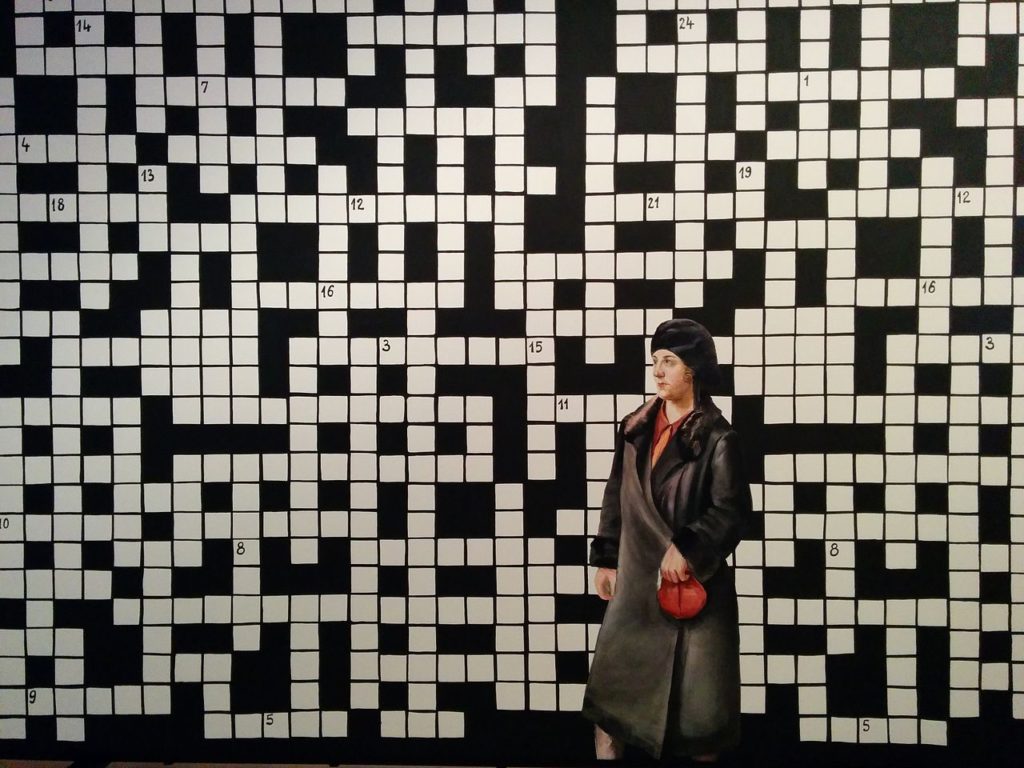We’re away until January 4, but we’re reposting some of our favorite pieces from 2020. Enjoy your holiday!
When I began to research the history of crosswords for my recent book on the subject, I was sort of shocked to discover that they weren’t invented until 1913. The puzzle seemed so deeply ingrained in our lives that I figured it must have been around for centuries—I envisioned the empress Livia in the famous garden room in her villa, serenely filling in her cruciverborum each morning. But in reality, the crossword is a recent invention, born out of desperation. Editor Arthur Wynne at the New York World needed something to fill space in the Christmas edition of his paper’s FUN supplement, so he took advantage of new technology that could print blank grids cheaply and created a diamond-shaped set of boxes, with clues to fill in the blanks, smack in the center of FUN. Nearly overnight, the “Word-Cross Puzzle” went from a space-filling ploy to the most popular feature of the page.
Still, the crossword didn’t arise from nowhere. Ever since we’ve had language, we’ve played games with words. Crosswords are the Punnett square of two long-standing strands of word puzzles: word squares, which demand visual logic to understand the puzzle but aren’t necessarily using deliberate deception; and riddles, which use wordplay to misdirect the solver but don’t necessarily have any kind of graphic component to work through.
from The Paris Review https://ift.tt/3mOlqia

Comments
Post a Comment